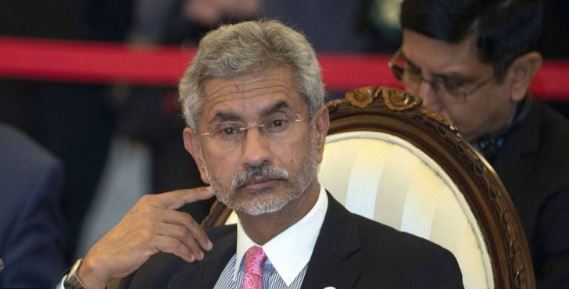New York: Hitting out at Pakistan, External Affairs Minister S Jaishankar has said India cannot talk to a “very challenging” neighbour that conducts terrorism as a legitimate tool of statecraft to put pressure on New Delhi to come to the negotiating table, and follows a policy of “implausible deniability”.
Addressing an event at leading think tank Council on Foreign Relations here on Wednesday, Jaishankar was asked about Kashmir and how he looks to manage New Delhi’s relationship with Islamabad.
“Well you used two key words and I would like to begin by differentiating that. One was Kashmir and other was Pakistan. And I’ll tell you why I do that. I don’t think that the fundamental issue between India and Pakistan is Kashmir. I think it’s part of the issues between us,” he said.
Jaishankar said the issue for India was not whether it talks to Pakistan, but how it can talk to a country that is conducting terrorism.
“Of course everyone wants to talk to their neighbour. The issue is, how do I talk to a country that is conducting terrorism and which frankly I would say follows a policy of implausible deniability,” he said.
“They do it, they kind of pretend they don’t do it. They know that that pretense is not serious, but yet they do it. So, how do you address that and I think it’s a huge challenge for us,” he added.
Referring to the terrorist attacks in India planned and conducted from across the border, Jaishankar said Mumbai, which was attacked in November 2008, is a few thousand miles away from Kashmir.
“You had the abortive attack on the Indian Parliament. So I think…we should distinguish between the antipathy, the deep antipathy that the segments of Pakistan nurse towards India from coveting Kashmir. I think they are autonomous issues,” he said.
The External Affairs Minister stressed the history of India and Pakistan was not a normal history.
Jaishankar said that despite being a neighbour, Pakistan will not trade with India, is a member of the WTO but will not extend MFN status, even though they are legally obliged to and New Delhi did it.
“You have a neighbour who would not allow you connectivity. So we have, for example, the potential to use Pakistan to transit on to Afghanistan, Iran but they will not allow you that connectivity,” he said.
He said such an attitude has slowed down regionalism, largely because of a concern that that might integrate them more with India’s economy.
“So it’s a very challenging neighbour,” he said.
“Now, all of that you could still handle if they then don’t do the one thing which is actually unacceptable in the world today, which is to conduct terrorism, as in their eyes, a legitimate tool of statecraft as a way of pressurising you to come to the negating table.
“It’s not acceptable today as a sort of norm of international relations anymore. You have terrorism in different parts of the world, but there’s no part of the world where the country uses it consciously, deliberately as a large scale industry against its neighbour,” he said.
Responding to a question on why the two countries have stopped playing cricket, Jaishankar said, “it’s very difficult in real life to separate issues.”
Highlighting the terror attacks in Uri, Pathankot and Pulwama, he said, “if the dominant narrative of a relationship is of terrorism, suicide bombings, violence and then you say, ‘okay, guys, now tea break, let’s go and play cricket’. That’s a very hard narrative to sell to people.”
Tensions between the two countries have spiked after India ended the special status of Jammu and Kashmir on August 5. The abrogation of Article 370 evoked strong reactions from Islamabad, which downgraded ties and expelled the Indian ambassador.
Pakistan has been trying to internationalise the Kashmir issue after India withdrew the special status, but New Delhi has asserted the abrogation of Article 370 was its “internal matter”. (PTI)





